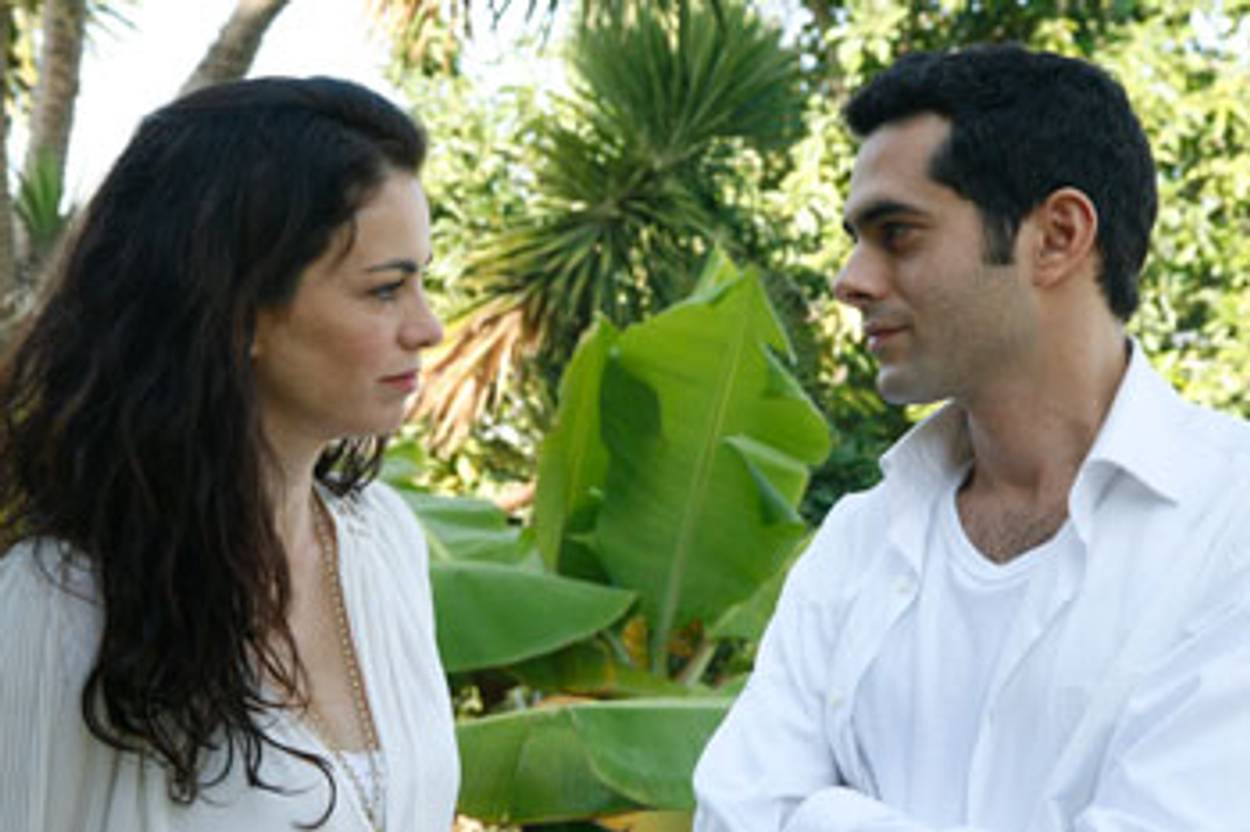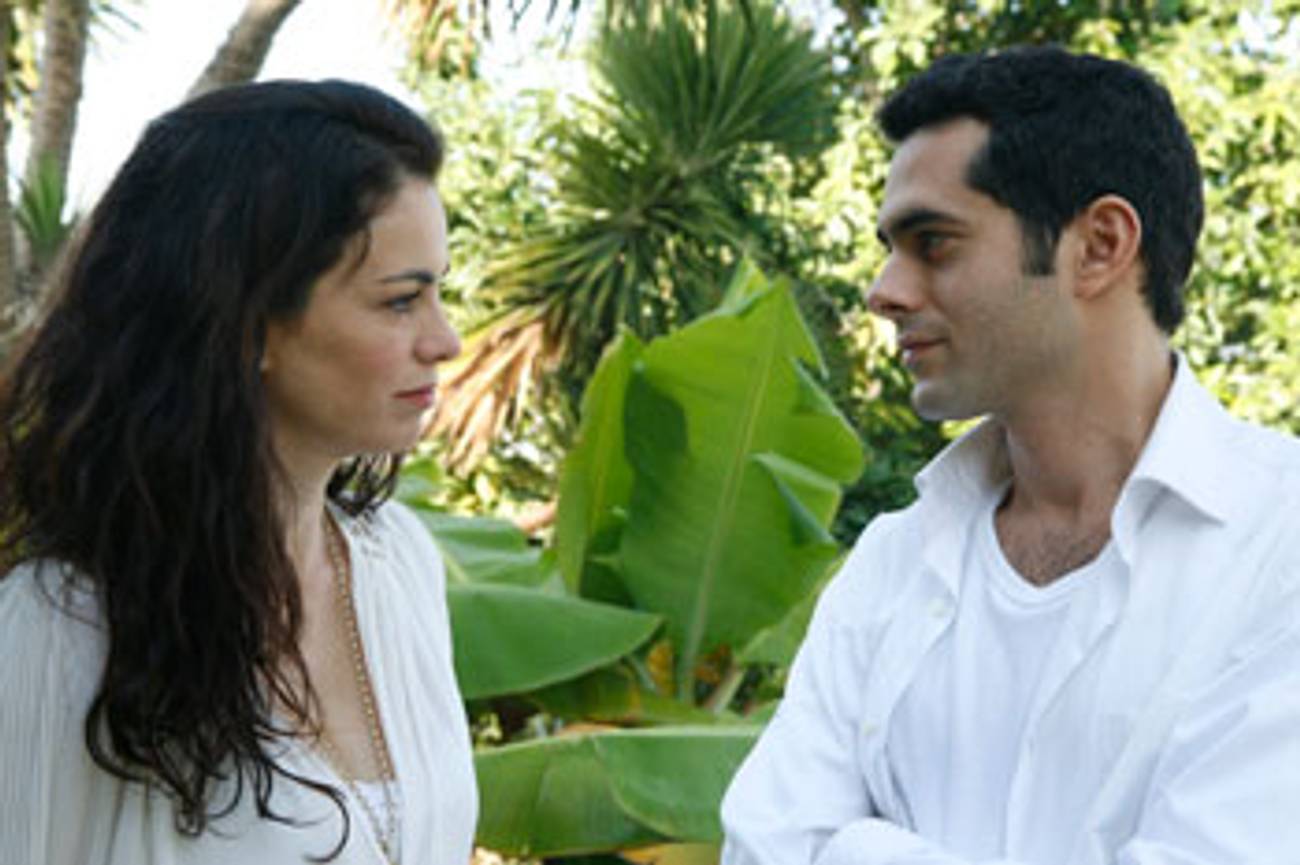Unprejudiced
A Jane Austen classic reset in the Galilee




“It is a truth universally acknowledged, that a single man in possession of a good fortune, must be in want of a wife.” So begins Jane Austen’s Pride and Prejudice. Though rife with Victorian frills, the book has aged remarkably well in the 200 years since it was published, and has been widely adapted for the screen. Many Israelis were hooked on the 1995 BBC adaptation, which more than 10 years later continues to be broadcast on Israeli television. But this summer Israel will get a homegrown version of the story, a six-part miniseries written and directed by writer and radio commentator Irit Linur.
The TV series follows on the heels of her recent translation of the book into Hebrew, a project that left Linur itching to try her hands at a more radical adaptation of the material.
In the new series, which is being produced by Israeli cable provider HOT, Austen’s rural England is replaced with the Galilee and the romance that unfolds between the two main characters, Alonah Sadeh (played by prime-time soap opera veteran Yael Hadar) and Nimrod Artzi (played by stage and TV actor Dan Shapira), is only loosely based on the original romance between Elizabeth Bennet and Mr. Darcy. In Linur’s version both romantic leads are recast as workers in Israel’s high-tech industry, but they are separated by a decidedly contemporary set of hurdles—Alonah is eight years older than Nimrod, and she has a teenage child from a previous marriage.
What inspired you to translate the novel?
It has been translated several times, but Hebrew changes quite rapidly. I think to some extent any translation would be outdated. Hebrew hasn’t settled yet, maybe it never will. The first translation I read was done by Aharon Amir. He belonged to a cultural movement known as the Canaanites, which had a very solid perception of what Hebrew should be. I think it was a bit serious, too serious for the book that is, after all, a comedy.
Would you call this a feminist book?
I don’t know whether it’s wise to judge books by modern moral standards. It’s an elegant and witty piece of art, why disturb it? It’s like taking beautiful flowers and dissecting them.
What was the most difficult aspect of translating the book?
The phrasing. English is much more pliable. Hebrew is less tolerant. It is a very succinct language.
Did you see the television series as an opportunity to make another kind of translation, perhaps a less faithful one?
No. It was an opportunity to have a laugh. My main objective was to have fun. In the book, the tension between Elizabeth and Mr. Darcy arises not only because of differences in temperament, but also because of differences in social status. Israel is not a class-based society, so I had to find another kind of gap between them. There’s also the issue of age. In the book Elizabeth is 20 and Darcy is 28. Here to get a young modern woman of 20 to be married is archaic.
So how did you choose to deal with that? And in what other ways does your version depart from the book?
Well, Darcy remained 28, but Elizabeth became 36 and a divorcee. Darcy remains rich, but Elizabeth is quite independent. Both work in the high-tech industry. I felt uneasy about maintaining the line of a rich man who saves his lady from a life of poverty. I thought it was inappropriate, and diminishes her charm. I thought maybe a reasonable gap would be a younger man and older, divorced woman with a teenager. Plus, I’ve ignored two sisters. I really couldn’t manage five sisters. They wouldn’t have volume. They never do, they are glorified extras in all versions. In the book it works just fine. You have to give your characters volume.
In your version, England has been replaced by the Galilee. Is it unusual for an Israeli television series to take place outside of the city?
We have our limits—it’s a practical thing. If you want to film outside Tel Aviv, then the time it takes to get there comes out of the time you have for filming. If you have to travel one hour to get there, you have one hour less to film. So it’s not that everyone is so self-centered, and everyone wants to make films and TV series about their natural habitats—it’s more costly.
Have you decided on a title?
I really don’t like the name Pride and Prejudice and the series eventually is not about pride and prejudice. Those are two abstract nouns. But I haven’t decided on a name yet.
And do you think the audience will recognize the original in your adaptation?
I think people who know the book will be happy to find bits and pieces and even replicas from it, and those who don’t should be able to enjoy it anyway. I think the greatest film version of an Austen book was Clueless (based on Emma), and I think the girls who watched it and enjoyed it as thoroughly as I did never dreamed that it was related to an ancient dead English writer. This is how art should work. It should be good and well-established whether or not it has anything in common with some classic old book. Some puritans might think my series is a an abomination, but I hope not.